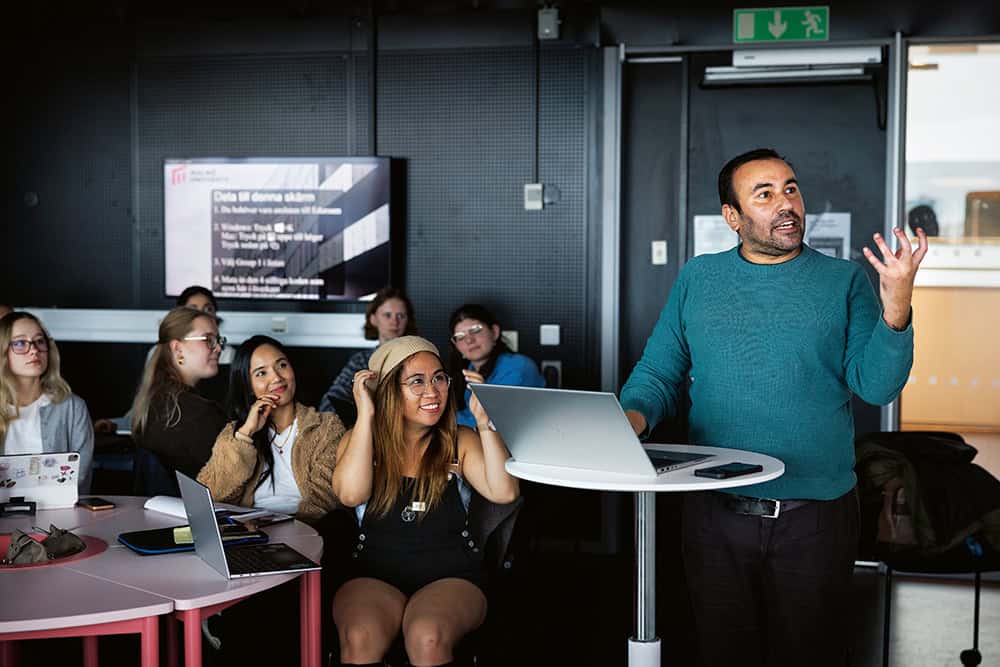Lecturing is a craft that both beginners and more experienced people can improve. There is good advice you can follow when you stand in front of your students and realise that your lecture ought to be more stimulating.
“You can sit down and think about it. What aspects of my lecture do not seem to be working? It could be the structure, it could be the language, it could be that I get nervous or whatever,” says Håkan Fleischer, an educational developer at the University of Gothenburg. He has just published a book on how to be a better lecturer.

Håkan Fleischer
Educational developer at the University of Gothenburg
If you cannot put your finger on the problem, and do not get any clues from course evaluations, for example, he has a method.
“This is really scary, but I would recommend having a colleague sit in on a lecture or two. Then talk through what your colleague thinks to get some ideas.”
Fleischer says that lectures are often boring because people do not dare to utilise their personality and their relationship to the subject; to let their passion for the subject shine through and show it to the students.
“It is a matter of finding your lecturer personality and becoming comfortable with it. It is not about putting on an act. You cannot do that five days a week.”
And if you can be comfortable in your role as a lecturer, you can also connect with your students and read them.
“This feeling of comfort is important if you are to be able to devote energy to the students and focus on them. For instance, do I seem to be going too fast or too slowly?”
It is a good idea to plan for breaks in the lecture, says Fleischer.
“Today’s generation is used to new things happening all the time, so shift focus every 20 minutes or so with a question or a small activity. For example you could get students to discussing key terms from the lecture in pairs.”
Three tips to improve your lectures
- Dare to use your personality to engage your audience.
- Try to free yourself of scripts as much as possible.
- Dare to build in interaction. Create situations with questions and answers to get communication going.
Source: Håkan Fleischer’s book Föreläsning som studentaktiv metod i högre utbildning (Studentlitteratur 2025)



















